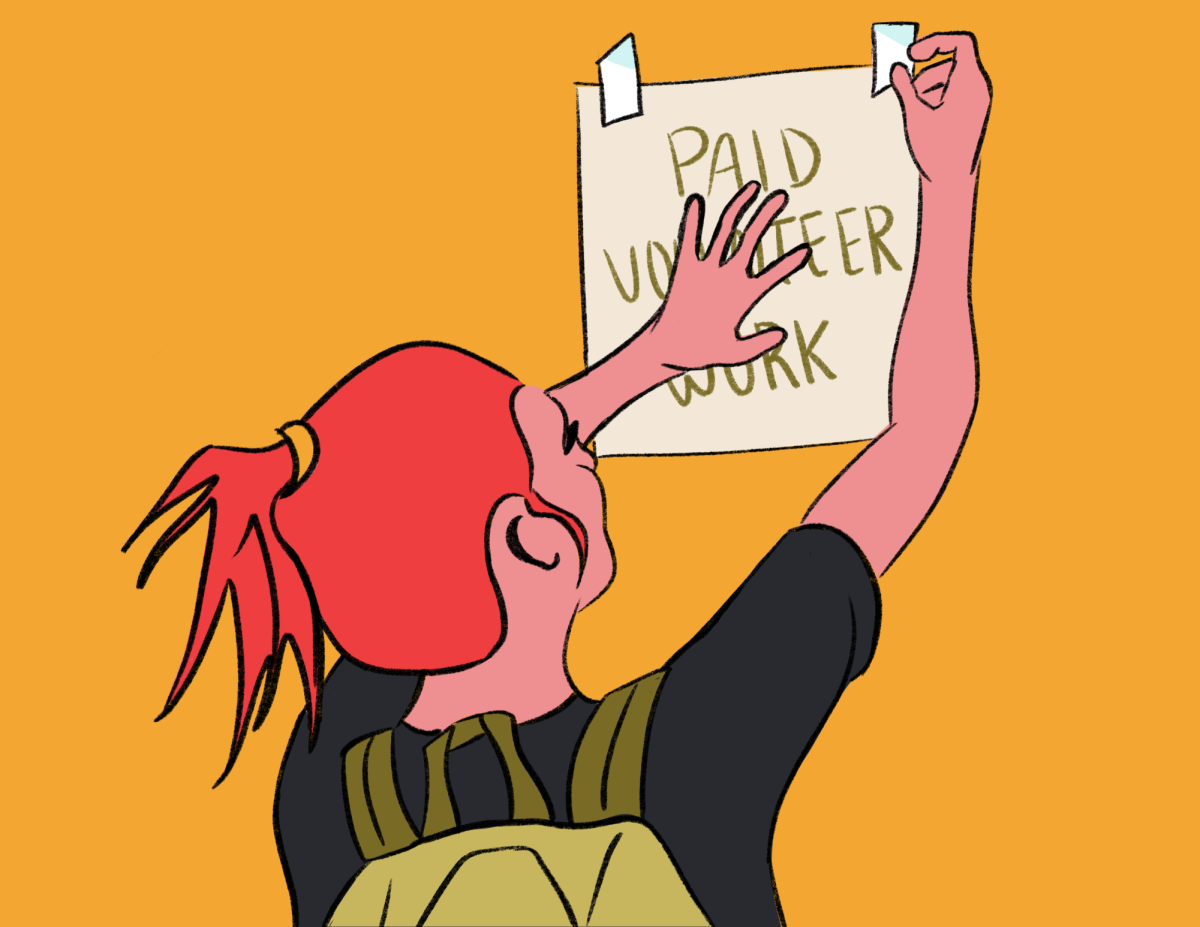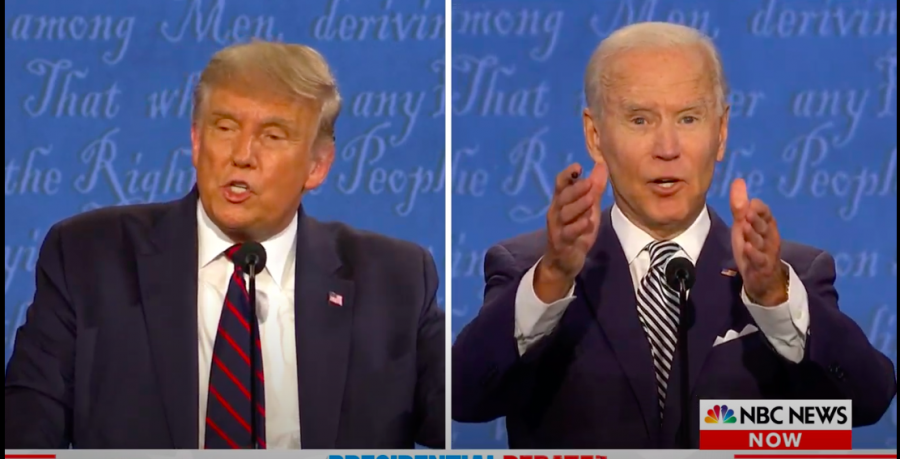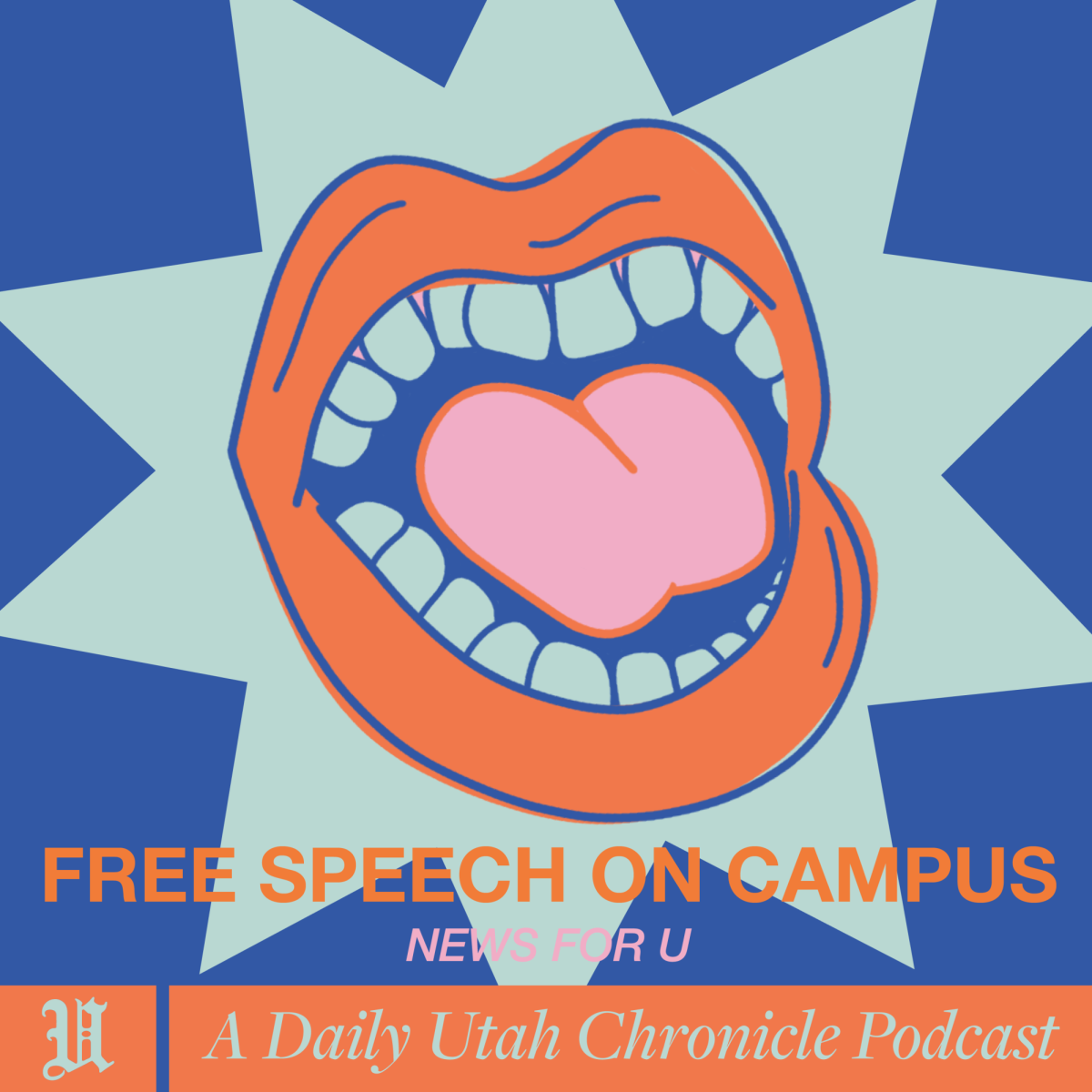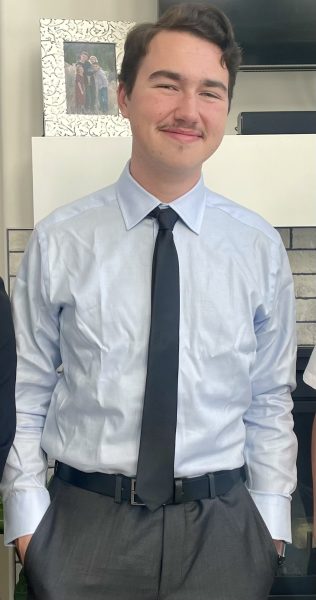In today’s episode, Emma speaks with News Writer Libbey Hanson about the university’s new task force, assigned to define what free speech is, and how that could affect activism on campus.
Emma Ratkovic 0:04
Hello and welcome back to News For U. I’m your host, Emma Ratkovic, joined with our producer Graham Jones. On this episode of the podcast we are going to discuss free speech on campus. News writer Libbey Hanson has joined us today to discuss her recent story published in the Chrony. Hi Libbey, thank you for joining us on the podcast today.
Libbey Hanson 0:24
Yeah, of course. Thanks for having me.
Emma Ratkovic 0:26
Can you introduce yourself and explain what you do for the Chrony?
Libbey Hanson 0:29
Yeah, so I am a news writer for the Chrony. And throughout the last semester, I have been focusing on student political issues and various events going on on campus.
Emma Ratkovic 0:43
Nice. So, in your story, you shared that on Jan. 8, Taylor Randall announced the formation of the Viewpoint Representation and [Expression] Task Force. Can you explain more in depth about what this group is and what they represent?
Libbey Hanson 0:58
Yeah, so this is a group of various university faculty, staff, students and trustee representatives. And as far as I can tell, from the interviews that I’ve conducted, at least the ones that I have interviewed, have experience within the realm of free speech, either legally or academically. The group is tasked with determining the current campus climate regarding free speech, and they are responsible for providing President Randall’s suggestions on how to fill any gaps and create a stronger sense of campus community and individual belonging.
Emma Ratkovic 1:32
And so who are some key members of the task force?
Libbey Hanson 1:36
So we do have Jason Perry, who is the vice president for government relations and director of the Hinckley Institute of Politics. [He is] going to be the chair of the task force. And then there’s some other names such as Michele Ballantyne, who’s the associate general counsel, of the Office of General Counsel. And then I also interviewed Dean Hollis Robbins from the College of Humanities and law professor Paul Cassell, and based off their interviews, they do seem qualified to research campus climate and make some suggestions for improvement.
Emma Ratkovic 2:12
So, what campus events do you think led to President Randall forming this task force?
Libbey Hanson 2:18
So there have been a couple of controversial events that happened this past semester, specifically, like ones that I have reported on is, with the student group Mecha promoting a poster with a firearm for queer alliance event. And then the university leadership asked them to take that poster down. And then a few weeks later, there was student group YAF [Young Americans for Freedom] that posted anti-trans posters, promoting anti-trans ideas in a film that they attempted to show — when this group did not hear from university leadership, and eventually that film event was shut down by Mecha and protesters. I do want to specify that Paul Cassell, when I did interview him, he did not relate this task force to the recent campus events. However, personally, I do think that they could have served as a catalyst to address this problem at this moment in time. Yeah.
Emma Ratkovic 3:17
How will this task force function in meeting its goals?
Libbey Hanson 3:22
So the process for this task force will take about 18 months total. The task force has nine months to survey the campus and determine the actual climate that we have right now. And after this, they have another nine months to present a final report, including suggestions on how to improve the campus climate and ensure that all voices on campus can be heard and respected. And based on President Randall’s letter, Jason Perry, who I mentioned previously, will provide regular updates on their progress throughout those 18 months.
Emma Ratkovic 3:56
And how can students engage with this group?
Libbey Hanson 3:59
To be honest, I would suggest responding to all the campus climate surveys and be brutally honest with how you feel about how free speech is addressed on campus. If you feel that things are going great, awesome, keep responding to those surveys. If you feel in some way, like constricted or nervous to speak up on campus about your beliefs, I would also share those sentiments in the survey as well and suggest solutions that you would like to see on campus. But I would say being engaged is the best way to promote change. And I would also suggest reaching out to any of the task force members and asking questions or sharing your thoughts. In my article that we posted, you can click on a link that will bring you to all of the 13 members and you can reach out to them as well.
Emma Ratkovic 4:52
How do you think this task force will affect activism on campus?
Libbey Hanson 4:56
This is difficult to say, just because we haven’t received, like the results of the surveys or anything. I don’t think that the task force will, like, inhibit any activism on campus by any means. But, you know this, this taskforce could provide new policies for what activism does look like on campus. So right now, free speech policy says that any student can express their opinion as long as they don’t take another student’s right away to express theirs. So the example when Mecha protested and wouldn’t let YAF’s film play, the issue was that one student — or a student who exercised their right to speech ultimately took away another student’s right to speak. So, the taskforce may instill less maybe conflictual policies for activism if they see fit, based on the climate survey results, however, again, is really difficult to say what it will look like in the future. But you know it — I don’t think that we’ll see any strict changes at this point in time until the results of the survey are in.
Emma Ratkovic 6:03
And then, what has been the student response to this task force?
Libbey Hanson 6:09
Yeah, I’ve seen polarized reactions to the task force. Some students believe it will be really helpful and have commended President Randall on creating the task force, while others see it as a possible attack on free speech rather than improving free speech. I think that in the past, we have seen some conflicting reactions from university leadership on free speech issues. And so I think some students are concerned that there will still be some conflicting policies.
Emma Ratkovic 6:45
Do you think there’s a broader movement taking place in the country that is represented by this initiative?
Libbey Hanson 6:51
Yeah, I do. Nearly every day, at least I see issues of free speech on campuses in the news, especially with like the pro-Palestine and Israel movements and recent bannings of DEI. So we’ve seen this majorly affect institutions like the University of Pennsylvania and Harvard with the resigning of their presidents over issues of free speech. So I do think that there is a national issue going on and this taskforce is, reaction, maybe a proactive action towards addressing these upcoming issues.
Emma Ratkovic 7:27
And how can students and staff safely advocate for their rights and freedom of speech?
Libbey Hanson 7:34
So, I would just start by saying that every student has the right to be here and to use their voice, and everyone just needs to keep speaking up for what they believe in, and their opinions. So I suggest emailing university leadership, answering the climate surveys, showing up or hosting your own events that express your opinions, or even contact your local government. The legislative sessions are currently going and there are multiple bills that will affect students on college campuses. So I suggest students keeping up with those bills that are currently being heard. And speaking up at the capitol and showing up as much as you’re able to and write your leadership. Regarding safety, though, it is important to remember that based on the university policy, just as you have the right to speak, others do as well. So, be as respectful as possible. And I know it can be difficult, but it is possible to wholeheartedly disagree and remain civil. And I think that that’s the most important thing for your voice to be heard at the at the current climate that we’re at on campus.
Emma Ratkovic 8:45
I like that advice a lot. And Libbey, do you have any final thoughts or comments?
Libbey Hanson 8:52
Yeah, I, I do think regarding free speech on campus, that we are in it for the long haul. I think that finding solutions within this realm is — there’s not a straightforward answer. There’s not one solution that’s going to solve all the issues that we have right now. You know, these issues are really politicized and polarized and I encourage students to keep fighting for their rights and their ability to speak on campus. And I’m really curious to hear the final report from the task force in 18 months — and I’m hopeful that their suggestions will lead to a safer campus climate.
Emma Ratkovic 9:32
Awesome. Thank you so much for joining us on the podcast today, Libbey.
Libbey Hanson 9:36
Yeah, thank you for having me.
Emma Ratkovic 9:38
I’m your host, Emma Ratkovic, and thank you for tuning in to this week’s episode of News For U. Watch out for our upcoming episodes.
Producer: Graham Jones — [email protected] | @grahamcool8
Host: Emma Ratkovic — [email protected] | @eratkovic_news
Guest: Libbey Hanson — [email protected] | @LibbeyHNews





















John Hedberg • Jan 31, 2024 at 9:41 am
“The best measure of the health of a democracy is the percentage of people who feel free to say what they actually think in public.”
“When you don’t let people speak, they scream. When you don’t let people scream, they tear things down. That’s why freedom of speech isn’t just some liberal arts luxury. It’s a precondition for peace.”
Vivek Ramaswamy (OH), Presidential candidate, 2023
Not exactly the March on Selma, but sumthin’~! 😅😊